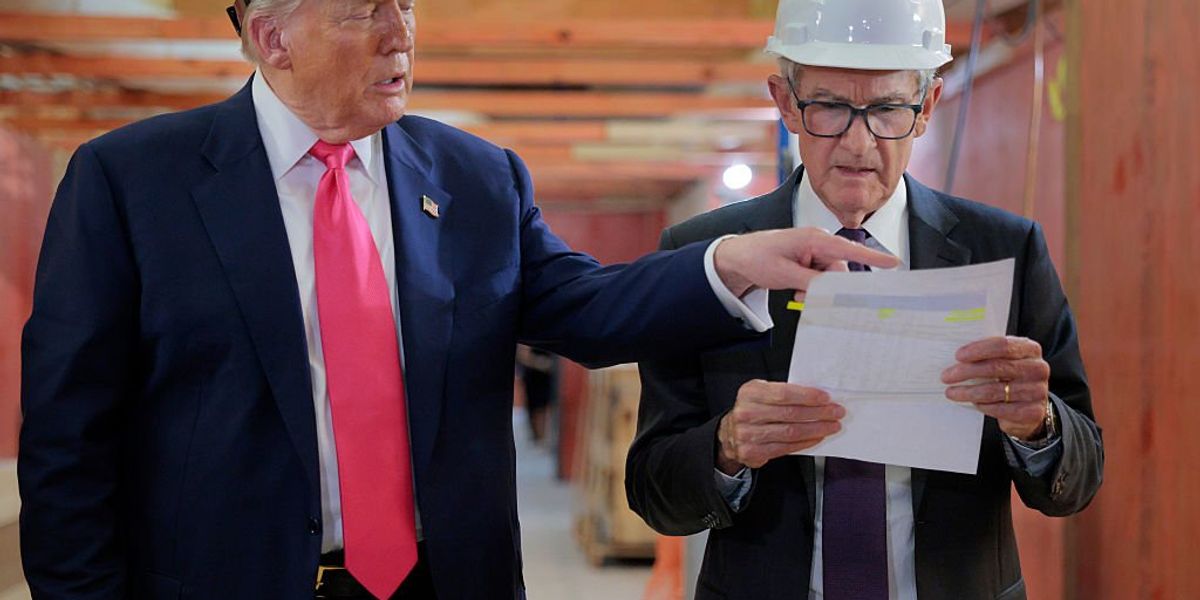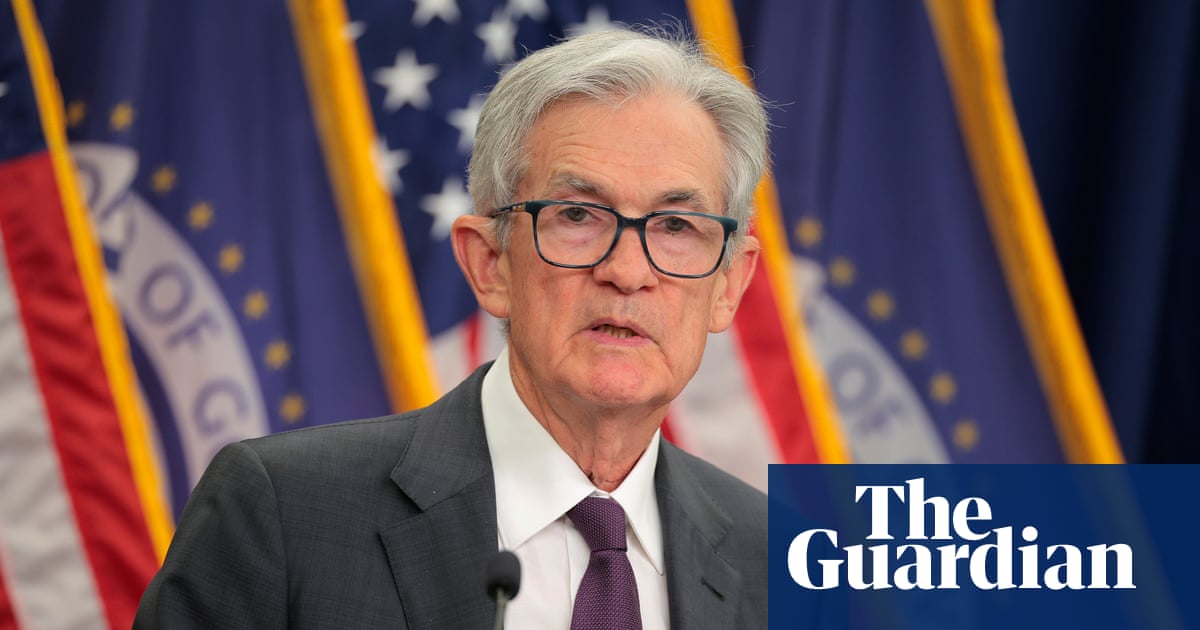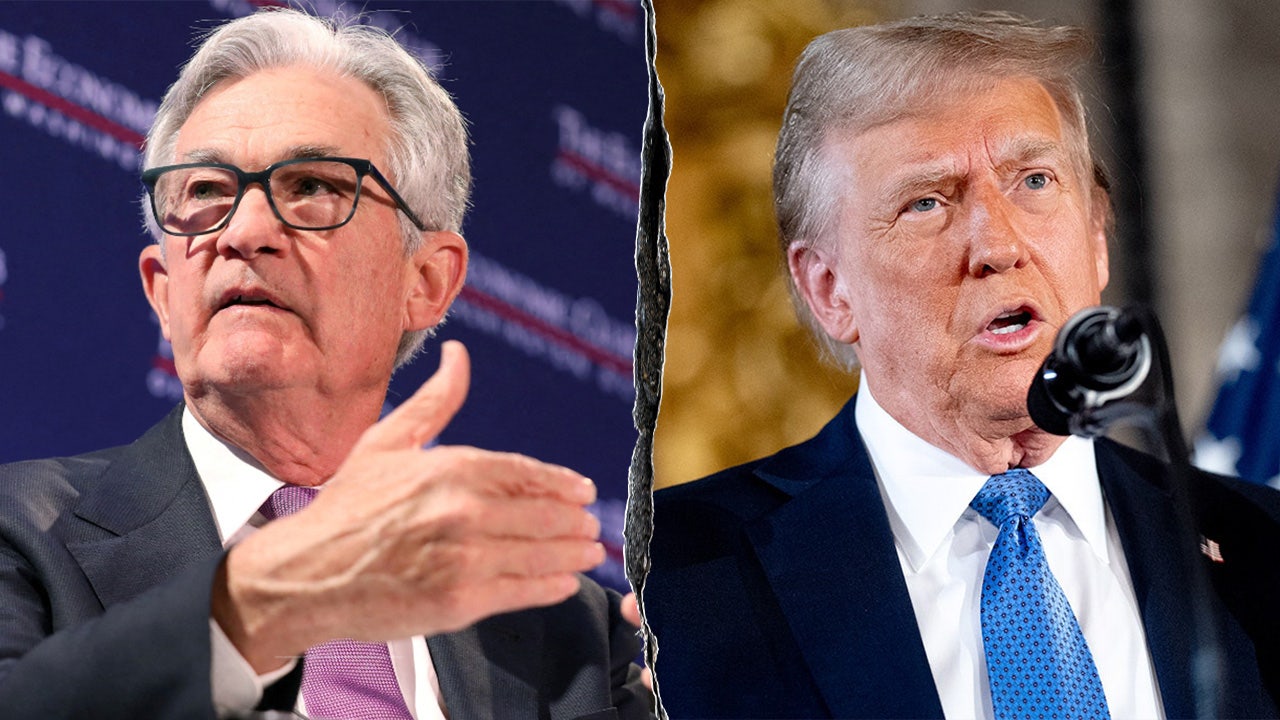President Trump Urges Federal Reserve Board to Seize Control from Powell, Demands Rate Cut
President Trump is publicly urging the Federal Reserve's board to take control from Chair Jerome Powell, demanding a 3 percentage point cut in the benchmark interest rate to stimulate economic growth, despite inflation concerns.
Subscribe to unlock this story
We really don't like cutting you off, but you've reached your monthly limit. At just $5/month, subscriptions are how we keep this project going. Start your free 7-day trial today!
Get StartedHave an account? Sign in
Overview
- President Trump has publicly called for the Federal Reserve's board of governors to assume full control of the central bank, specifically from current Fed Chair Jerome Powell.
- Trump's primary criticism targets Powell's decision to maintain the benchmark rate for overnight loans, arguing for a significant reduction in short-term interest rates.
- The President is specifically demanding a substantial 3 percentage point reduction in the Fed's benchmark rate, believing this action is crucial for fostering economic growth.
- This demand comes despite the Federal Reserve's core responsibilities of stabilizing prices and maximizing employment, and the potential risk of accelerating inflation from large rate cuts.
- President Trump disputes claims of inflation, maintaining his stance that lower interest rates are essential and advocating for the board to override Powell's current policy.
Report issue

Read both sides in 5 minutes each day
Analysis
Center-leaning sources cover the story neutrally by presenting multiple perspectives and factual data without editorializing. They detail President Trump's demands for rate cuts, Fed Chair Powell's rationale for current policy, and the views of dissenting governors. The coverage also incorporates relevant economic indicators and legal context, allowing readers to form their own conclusions based on comprehensive information.
Articles (8)
Center (2)
FAQ
The Federal Reserve's board of governors collectively oversees the central bank's policy decisions, but the Chair, Jerome Powell, is the public face and leader of the Fed. The board does not have unilateral power to strip the Chair of control; policy decisions are made by the Federal Open Market Committee, a 12-member panel including Powell with equal votes.
President Trump believes such a significant rate cut is crucial to stimulate economic growth and reduce debt servicing costs. He argues that the economy would benefit from lower rates, despite the Federal Reserve's concerns about inflation and stable price levels.
A large rate cut could pump more money into the economy than it can absorb, potentially accelerating inflation. The Federal Reserve's responsibility to stabilize prices and maximize employment suggests caution, especially given current inflation measures are already slightly above the target.
Jerome Powell and Federal Reserve officials have maintained the benchmark rate so far, citing the need to assess the impact of fiscal policies such as tariffs on inflation before making further changes. The Fed emphasizes the importance of stable prices and employment rather than immediate rate cuts.
Emergency meetings to adjust rates are rare. The last emergency rate cut before this situation occurred in March 2020 at the onset of the COVID-19 pandemic. The next scheduled FOMC meeting is in mid-September, making immediate cuts unusual outside an emergency meeting.
History
- 3M

 3 articles
3 articles






